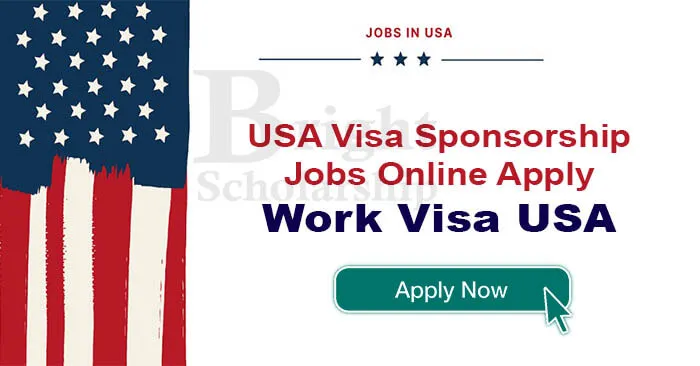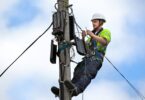Advertisements
The United States remains one of the most sought-after destinations for immigrants looking to build a better life through stable employment, professional growth, and long-term opportunities. For skilled and semi-skilled workers outside the U.S., jobs with visa sponsorship offer a legal and rewarding pathway to live and work in America.
If you’re searching for how to work in the USA as an immigrant with a sponsorship visa, this guide will walk you through the top industries hiring foreign workers, available visa types, and how to begin your application today.
High-CPC Keywords Targeted in This Article
To boost search engine visibility and advertising value, this article includes valuable keywords such as:
- Work in USA for immigrants with visa sponsorship
- Sponsorship jobs in USA 2024
- H-1B visa jobs in America
- How to apply for USA work visa from abroad
- USA jobs with visa sponsorship for foreigners
- Employment-based immigration to USA
- Apply for US sponsorship work visa jobs
Why Work in the USA?
Key Benefits:
- Competitive salaries and employee benefits
- Global career advancement opportunities
- Diverse, multicultural workforce
- Access to permanent residency pathways
- High demand for skilled labor across multiple industries
With more U.S. employers actively seeking international talent due to workforce shortages, especially in healthcare, IT, engineering, and logistics, visa sponsorship jobs for immigrants are more accessible than ever.
Top Visa Sponsorship Programs for Immigrants
To work in the USA legally as a foreign national, you’ll need an employer to sponsor your work visa. Below are the most common types:
Advertisements
1. H-1B Visa (Specialty Occupations)
- For professionals in IT, engineering, finance, education, and more
- Requires a bachelor’s degree or higher
- Sponsored by U.S. employer
- Typically valid for 3 years, renewable to 6 years
2. H-2B Visa (Temporary Non-Agricultural Workers)
- For seasonal or temporary workers in hospitality, landscaping, construction, etc.
- No degree required
- Ideal for semi-skilled labor
3. EB-3 Visa (Skilled and Unskilled Workers)
- Employment-based green card pathway
- Includes both skilled and unskilled workers
- Suitable for long-term immigrants looking for permanent residence
4. J-1 Visa (Exchange Visitor Program)
- For interns, trainees, teachers, and au pairs
- Offers temporary work and cultural exchange opportunities
Industries Offering Sponsorship Jobs in the USA
Many sectors in the U.S. economy are currently experiencing labor shortages and actively hiring foreign nationals through visa sponsorship programs.
1. Information Technology
- Software developers, data analysts, system engineers
- Top Employers: Google, Microsoft, Amazon, IBM
2. Healthcare
- Registered nurses, physical therapists, caregivers
- Top Employers: Mayo Clinic, Cleveland Clinic, Kaiser Permanente
3. Engineering and Construction
- Civil, mechanical, and electrical engineers
- Employers offer EB-3 and H-1B sponsorships
4. Hospitality and Food Services
- Cooks, servers, hotel staff
- Ideal for H-2B applicants
5. Logistics and Transportation
- Truck drivers, warehouse workers, equipment operators
- Opportunities through EB-3 and H-2B visas
How to Find Visa Sponsorship Jobs in the USA
1. Use Verified Job Boards
Search jobs that specifically mention “visa sponsorship available” on platforms like:
- MyVisaJobs.com
- Indeed.com
- H1Bdata.info
- LinkedIn Jobs
2. Apply Directly to Companies
Look for U.S.-based companies that have a history of sponsoring international workers. Target your application to companies in your field with open visa sponsorship policies.
3. Tailor Your Resume to U.S. Standards
Include your experience, certifications, and international work exposure. Highlight your willingness to relocate and your eligibility to work with sponsorship.
4. Secure a Job Offer
A job offer is the most critical step in qualifying for a U.S. work visa. Once an employer agrees to sponsor you, they’ll initiate the visa application process with the U.S. Department of Labor and USCIS.
Application Process for a Sponsorship Visa Job
- Identify visa-sponsoring employers in your field
- Submit job applications and attend interviews
- Receive a formal job offer
- Employer files a petition for your visa (e.g., Form I-129 for H-1B)
- Attend visa interview at your nearest U.S. embassy
- Receive approval and travel to the United States
Note: Most visa processes take 2 to 6 months, depending on visa type and USCIS processing times.
Tips for Immigrants Applying for Jobs in the USA
- Focus on in-demand skills (IT, healthcare, logistics, skilled trades)
- Be honest about your immigration status when applying
- Obtain professional certifications if required in the U.S.
- Improve English language skills for communication and interviews
- Follow up with recruiters and employers after applying
Conclusion
The United States offers countless opportunities for qualified immigrants seeking a better future through employment. With increasing labor demands and open visa pathways, working in the USA with a sponsorship visa is more achievable than ever in 2024 and beyond.
Whether you’re an experienced software developer, a nurse, or a hardworking tradesperson, the key is to start now—identify the right visa, target employers offering sponsorship, and begin your application today.
Your American dream begins with one application. Don’t wait—apply now and take the next step toward working legally in the USA.
Need help identifying U.S. companies hiring with visa sponsorship or preparing your application? I can guide you through the process from resume building to visa application support.
Advertisements






